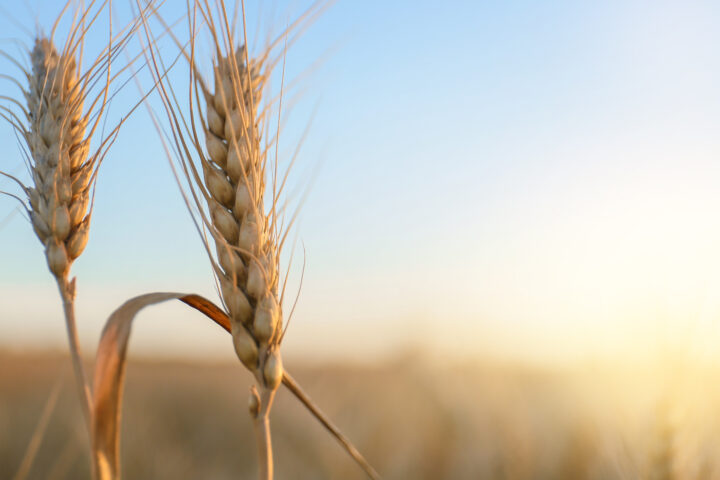
Insect-resistant SmartStax maize does not harm water fleas
Farmers around the world are growing pest-resistant varieties of maize that contain additional genes that protect them against damage caused by insects. Do these varieties also have negative environmental effects or harm other living creatures? Researchers at Agroscope took a closer look at varieties of maize that have six different genes to combat insects.
Thursday, September 30, 2021
In brief
- Most insect-resistant plants produce Bt proteins derived from the soil bacterium Bacillus thuringiensis.
- It must be ensured that the Bt proteins do not have any negative effects on ecosystems.
- Researchers from Agroscope have studied the effect of Bt proteins on water fleas. No harmful effects could be detected.
Insect-resistant crops provide farmers with many benefits and are very popular as a result. They are planted on around 108 million hectares around the world, accounting for 57 percent of the total cultivation area of genetically modified crops. In most cases, the plants produce different versions of the Bt protein, which is originally from the Bacillus thuringiensis soil bacterium. Of course, it must also be ensured that the transgenic Bt plants do not have any unacceptably deleterious effects on the ecosystem aside from the intended effects against pests. This is checked as part of the approval process, but it is also increasingly being done through trials conducted as part of the actual cultivation.
No harmful impact as a result of SmartStax varieties
Several years ago, the potential harmful effects of Bt maize varieties on water fleas were described, but the results were not conclusive. Yi Chen, Jörg Romeis and Michael Meissle of the Swiss research institution Agroscope have now looked at how transgenic varieties of maize that produce six different Bt proteins (SmartStax) affect the well-being of water fleas in a detailed series of experiments. They used cornmeal, leaves and pollen from two insect-resistant varieties of SmartStax, two comparable non-transgenic varieties of maize and one traditional variety of maize from the Rhine Valley. They placed the water fleas on a diet consisting solely of the materials being examined and checked their survival, growth and reproductive success over the course of several weeks.
It turned out that the Bt proteins in the SmartStax varieties had no harmful impact. However, the insects developed differently, depending on the food they were given. Cornmeal appeared to be less digestible, while pollen and leaves were easier to digest, despite have ten times as much Bt protein. This suggests that biological effects are mainly due to differences in the composition of the various types of food – irrespective of whether the maize varieties are transgenic or not. In fact, in a parallel study significant differences were also observed with various conventional varieties of maize used as food for water fleas.
Therefore, careful studies that also take account of the wide range of natural variability of plant materials are needed to assess the risk.
This article appeared in Point Newsletter No. 231 published by scienceindustries. The newsletter looks at current topics in biotechnology.
Sources
Related articles

Lack of diversity becomes an existential problem
The dwindling genetic diversity in fields is becoming an increasing problem. Unfortunately, this problem is growing steadily, partly because politicians in Switzerland and the EU are viewing the issue through ideological lenses instead of listening to science.

Research into fungal diseases in Lyon
Fungal diseases are one of the greatest threats to global food production. They endanger crops, cause billions in damage every year and have always put farmers under pressure. A detailed report by RTS provides insights into Bayer's global research and development centre in Lyon, where new, environmentally compatible fungicides are being researched.

Science sounds the alarm: Federal Council draft slows down innovation
The new genomic breeding methods are regarded worldwide as a source of hope for climate-resilient agriculture – precise, efficient, and safe. While countries such as the US, Japan, and soon the EU are pushing for deregulation, the Federal Council's regulatory proposal remains tentative. Now researchers and industry are sounding the alarm: the proposed rules are so strict that they would effectively block innovation and application.

Approvals are becoming a brake on innovation worldwide – and agriculture is being left behind
New findings from the United States highlight what has long been a reality in Europe and Switzerland as well: the development and approval of new crop protection products has become such a complex, lengthy, and costly process that even innovative, sustainable solutions can hardly reach the market anymore.

